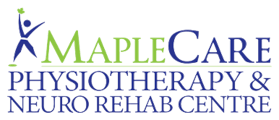Our physical movements are not just a way to express ourselves but they also help us to perform a range of functions in our day-to-day personal and professional lives. So when we experience movement disorders, it can really compromise our ability. Movement disorders are a range of conditions that make it difficult for us to move our bodies in a healthy manner. People with movement disorders may find it difficult to move their faces properly or experience faster or slower movements of their arms and legs. Typically, these movement disorders are caused by some kind of neurological conditions.
Here is a look at some of the most common types of neurological movement disorders.
Ataxia
Ataxia is defined as impaired coordination of voluntary muscle movement and affects one’s balance, speech, muscle control, and coordination. It is not a disease, but a symptom of an underlying condition. It is usually caused by damage to the cerebellum and can seriously affect daily life. While any area of the body can be affected by it, ataxia mostly causes difficulty in eye movements, speaking, balance and walking.
Chorea
Chorea is a type of movement disorder wherein the patient experiences sudden, uncontrollable and unintended movements of the legs, arms and the facial muscles. It can be caused by Huntington's disease or other types of genetic disorders like Wilson's disease. The condition is characterized by dopamine overactivity in the brain.
Dystonia
Dystonia can be defined as a type of neurological movement disorder in which a patient undergoes involuntary muscle contractions which can lead to abnormal postures or repetitive and twisting movements. It is believed that dystonia is a result of problems affecting the basal ganglia, although the exact reason for this condition is still a mystery.
Huntington's disease
Huntington's disease is a complex genetic disorder affecting the body’s neurological system in which neurons in some parts of the brain break down, wither and die. Symptoms are physical, cognitive and emotional and vary greatly from person to person and at different stages of the disease. Resulting from a faulty genetic makeup, Huntington's disease affects the body’s intentional movement. It leads to progressive cognitive decline, thus causing poor memory and compromised decision-making abilities.
Multiple system atrophy
Multiple system atrophy is a rare progressive condition that affects the autonomic nervous system. It gradually damages the nerve cells present in the brain which in turn affects movement and balance as well as other functions like bladder control, breathing and digestion. MSA is of two types: Parkinsonism type MSA (type P) and Cerebellar type MSA (type C). Parkinsonism type MSA has symptoms similar to Parkinson's disease, such as slowness to movements, tremas and stiffness. Cerebellar type MSA is associated with balance and coordination problems difficulty swallowing, speech problems and abnormal eye movements.
Myoclonus
Myoclonus is an involuntary and sudden muscle spasm or contraction. It may occur normally (ex: hiccups or jerks when falling asleep), but it may also be a symptom of an underlying condition. The muscle twitches might occur in numerous areas of the body. It can also affect a cluster of muscles or one single muscle.
Parkinson's disease
Parkinson's disease is a complex neurological disorder in which the motor system of the body gets affected. It leads to uncontrollable movements, like stiffness and shaking and also difficulty in maintaining coordination and balance. A person with Parkinson's disease has problems in producing dopamine within the brain and this may affect the mood. Symptoms and progression of the disease vary from person to person, but that generally do not respond well to dmg treatment with levodopa.
Parkinsonian disorders
The Parkinsonian disorders are a group of neurological disorders that lead to abnormalities in movement similar to what can be seen in Parkinson's disease. Some of the common symptoms associated with this group of conditions include rigidity, tremors, postural instability and bradykinesia or slowness of movement. Common conditions include Wilson's disease, Vascular parkinsonism. Lewy body dementia, progressive supranuclear palsy, multiple system atrophy and more
Progressive supranuclear palsy
Progressive supranuclear palsy is a very rare neurodegenerative condition wherein patients suffer from compromised cognition, balance and movement. It shares some characteristics with Parkinson's disease. Most of the symptoms of progressive supranuclear palsy worsen over time. Patients can experience a loss of cognitive faculties and this can lead to changes in behavior.
Restless legs syndrome
Restless legs syndrome or Willis-Ekbom disease causes an irresistible desire in people to move their legs. Additional discomforting sensations felt in the legs include aching, itching, crawling and tingling. These sensations may also worsen after long periods of rest. The exact reasons responsible for restless legs syndrome are not known.
Tardive dyskinesia
Tardive dyskinesia is a type of movement disorder characterized by repetitive and unpredictable movements of the lips, tongue, face, and other areas of the body. The condition is believed to be caused by the use of some specific medications like antipsychotic drugs that are used for treating schizophrenia and bipolar disorder.
Tourette syndrome
Physical symptoms may include dystonia (involuntary movements), decreased coordination, tremas and difficulty with balance and walking.
Wilson's disease
Wilson’s disease is a type of genetic disorder that makes it difficult for the body to remove extra amounts of copper. This leads to copper buildup within the brain, liver, and eyes as well as in other organs. Eventually, this leads to severe health issues and even organ damage when left untreated.
Unlike some of the other health conditions that one may face with increasing age, movement disorders can seriously undermine one’s ability to function normally and independently.
Thankfully physiotherapy can help to manage many of the movement-related symptoms of all of these conditions. Contact our physiotherapy clinic team of specially trained physiotherapists today!
Our physiotherapists clinic in Ottawa for Movement disorder has dedicated team of physiotherapists for movement disorder treatment.
